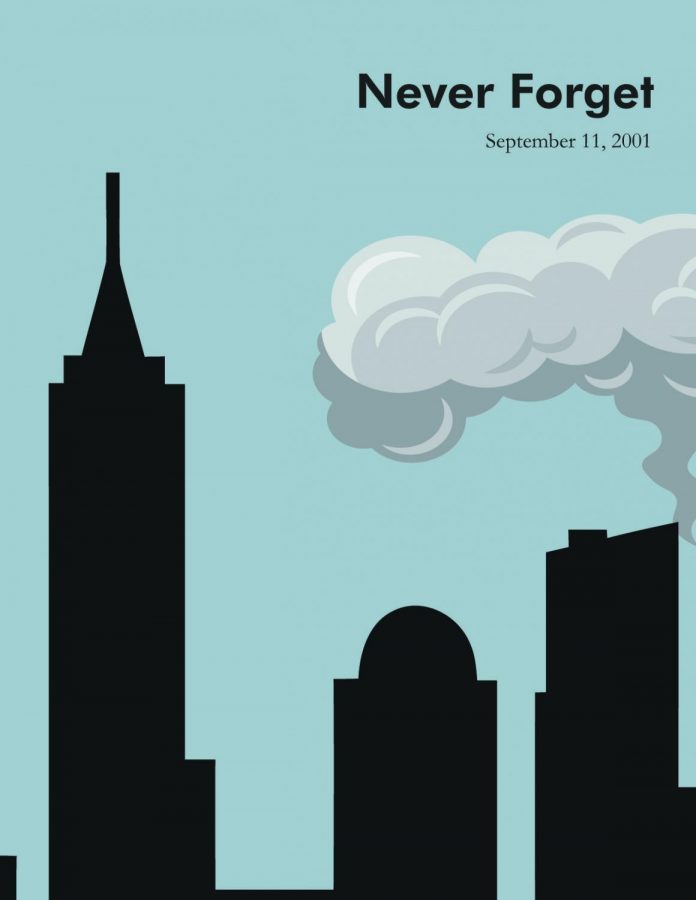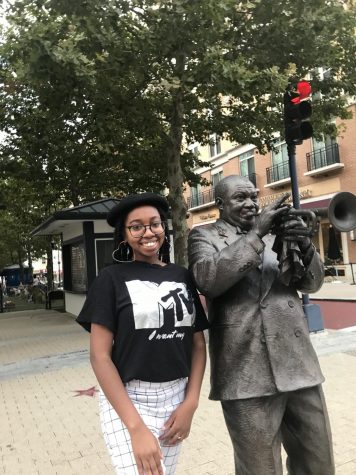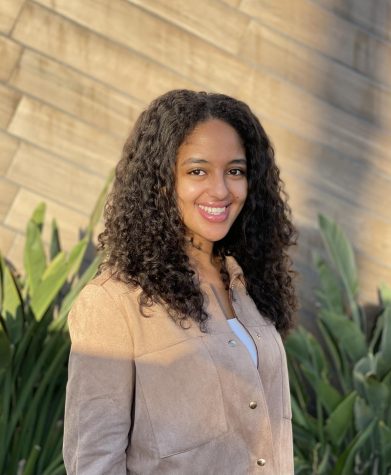“It was a sunny Tuesday morning, the weather was actually nice for September in D.C., you never would’ve thought…” my dad would always say when recalling the day the world changed.
The September 11 terrorist attacks, historically known as “9/11,” left America in terror and in unexplainable grief after nearly 3,000 people, three of whom were SDSU alumni, were killed in New York City, Washington, D.C. and Shanksville, Pennsylvania. Even more Americans were injured and still suffer from the day’s impact through PTSD.
Twenty years later, there is an overwhelming share of Americans who are either far too young to remember the devastating event or weren’t born yet. Younger generations have had to hear the stories of people who lived through historical tragedies.
My mom worked at the Federal Bureau of Investigation headquarters in D.C. at the time and would tell me over the years how petrifying it was to hear about the planes crashing into the Pentagon, only minutes away from the F.B.I., and she realistically wondered if her workplace would be the next target.
Her vivid recollection of how the elevators in her building were packed with people leaving due to the state of emergency seemed movie-like. When she finally got outside of the building, loud sounds emerged and the thought of another plane crashing nearby made her desperately want to be home, safe and sound, with my dad and me, who was only a year-old at the time.
Like my parents, Americans who were old enough to witness this tragedy remember the moment they first learned of the attacks — where they were, who they were with and the way it made them feel.
I think about how my mom could have been hurt that day or perhaps far worse but instead, my family and I were okay and that’s the story we get the privilege to tell. However, others have more unfortunate stories to tell, and it is important that we continue to recognize this as well as how blessed many of us are.
Two decades after the attacks, the focus needs to be on the families who lost loved ones or are still impacted — both physically and emotionally.
I’ve read the books. I’ve watched the special documentaries. Being from D.C., I’ve seen the memorials. I’ve visited the museum exhibits. I drive past the Pentagon on a regular basis. It all hits too close to home every time — not only because my hometown was one of the cities directly affected but as an American citizen, my heart aches at the nightmare that has struck families across the country.
As the 20th anniversary of 9/11 approaches, every American should say the same as if it happened to them — because it did.
On Sept. 12, 2001, the world was a completely different place for all of us. Anti-Muslim violence became prominent and increased security occurred not only on a national level but on a local premise as well.
About a week after the attacks, President George W. Bush spoke to the nation and called for the “war on terror.”
“Our war on terror begins with al-Qaeda, but it does not end there,” Bush said in his address then. “It will not end until every terrorist group of global reach has been found, stopped and defeated.”
Troops invaded Afghanistan in early October of 2001 with several objectives: one being to murder Osama bin Laden, the mastermind behind the 9/11 attacks. Under the Obama administration, America was successful in bin Laden’s murder.
On Aug. 31, President Joe Biden declared the end of the war in Afghanistan, which lasted for nearly two decades, making it the longest war in American history. This had negative impacts as the Taliban quickly took control of the Afghan government.
We all have left voicemails for someone we love. Hearing Brian Sweeney’s final voicemail on 9/11 to his wife, Julie, will always be chilling. The possibility of it being your last one forces you to turn inward and consider the terrifying prospect of it becoming a sudden reality as it did for the Sweeneys.
Bill Biggart sacrificed his life in the name of journalism to photograph the destruction of the Twin Towers to the best of his ability, capturing the jarring 9/11 images we all can easily identify today. Making it even more personal, the journalist in me recognizes how essential storytelling is and it fuels my deep respect for Biggart’s contributions to photojournalism.
After twenty long and painful years, this is a day that is impossible to forget because of its deadly legacy that has tainted our country forever. It changed the way we view war, peace, our safety and fellow Americans.
No matter where you’re from, Sept. 11 should and will always hit too close to home.
Trinity Bland is a senior studying television, film, media and Spanish. Follow her on Twitter @trinityaliciaa.










